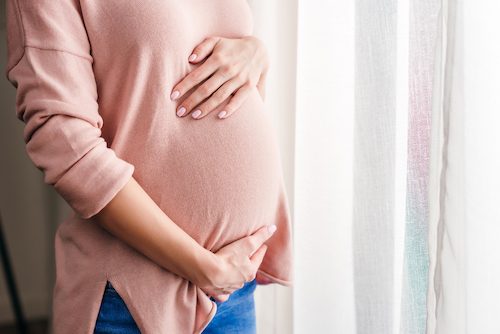Maternity care in Austria is of an excellent standard, and the country is even a medical tourism destination for people who want to give birth somewhere they can be guaranteed a high quality of care.There are some differences between those who opt for state maternity care and those who choose to take out private health insurance in Austria, but the differences are mostly related to comfort levels.
Maternity Leave In Austria
Expats moving to Austria from countries with limited maternity leave, or where the amount of maternity leave granted is left up to their employers to decide, will be pleasantly surprised to find that in Austria there are government-mandated amounts of maternity leave which both companies and individuals must adhere to.
If there are no complications during pregnancy, then you are required to take eight weeks off before giving birth, and eight weeks after. If you count as a ‘high-risk’ pregnancy for any reason, then you will need to take twelve weeks off before and twelve weeks after giving birth. During this period you will receive maternity benefit (Wochengeld) from the state, unless your employer continues to pay your normal wages throughout your maternity leave. If you are entitled to Wochengeld, you will need to fill in the required form online to prove your eligibility.
Once your baby has been born, you will need to send a copy of the birth certificate to Gebietskrankenkasse in your area. This will let them know that they need to begin paying the post-natal maternity benefit. If your baby has been born by caesarean section, or if it is premature, you will also need a letter from your doctor to accompany the birth certificate.

If you have private health insurance then you are still entitled to maternity benefit, but the amount is much lower — around €10 per day, roughly a third of what you will get if you are solely using the state system.
In Austria, you are legally required to tell your employer you are pregnant as soon as you have found out, assuming you plan to carry the child to term and therefore take off the required amount of maternity leave. Your doctor will also need to fill out a form stating your expected due date, so that your employer can plan your maternity leave accordingly. If your baby arrives early or late, you will need to inform your employer as soon as possible so they can sort out your maternity leave.
Since 2017, fathers have been allowed to take up to one month’s paternity leave when their child is born. However, this is at the discretion of the employer, rather than being government-mandated like maternity leave. It is almost always unpaid leave, as well, although you can claim a small amount in social security payments during this time.
Planning Your Pregnancy In Austria
When you find out you are pregnant, if you decide to go ahead with the birth you should visit your doctor and ask for a maternity card (Mutter-Kind-Pass). This card will give you information about the appointments you need to go to and the milestones you should be hitting up to your child’s birth. It also allows your doctor to note down the results of any examinations, so you can keep all of your pregnancy-related information in one place.
If you do not have private health insurance, then you will need to fill in a form confirming your entitlement to state healthcare before you can receive your Mutter-Kind-Pass. You will then be reimbursed for any fees by whichever local authority is responsible for your healthcare.

All necessary maternity care is free under the state health system in Austria. You can expect to be seen by a gynaecologist for examinations, blood tests and ultrasounds, and you will not be charged for any of these appointments.
Many people opt to hire a private midwife who will help them throughout the pregnancy, be there during the birth, and provide post-natal care for a set period of time afterwards. This can be particularly useful for first-time mothers, especially those who are living far away from their family and friends.
A midwife will visit you after the birth to see how you are doing and check that the baby remains in good health. Opting for a private midwife will give you added options here, for example they might help you with shopping and other tasks around the house.
Giving Birth In Austria
In Austria, women have a legal right to give birth at home, and if you choose this option then any attendant costs will be refunded by your healthcare provider. Although the state healthcare will pay for home births, a lot of people who go down the home birthing route choose a private midwife instead, since it gives them more control over how the birth is set up.
If you choose to give birth in a hospital, then transport to and from the hospital will be free, even if there is no emergency.

It is a good idea to visit your local hospitals’ maternity wards well in advance of giving birth, and to register with one of them so you are fully prepared when your baby arrives. However, if for any reason you have not managed to do this, you will still be able to give birth in whichever hospital you go to: hospitals are not allowed to turn away women in labour.
Once your baby has come into the world, you have a couple of options for your stay in hospital. You can either book a Wochenbett, which lets you stay in hospital for up to a week after the birth; or an Ambulante Geburt, which allows you to go home between three hours and two days after giving birth. If you choose the second option, then you will need to make sure you have a designated midwife who has arranged to come to see you every day for at least a week. This is to make sure that both you and your baby remain in good health and that you are coping post-birth.
Would you like to share your experience of life abroad with other readers? Answer the questions here to be featured in an interview!

